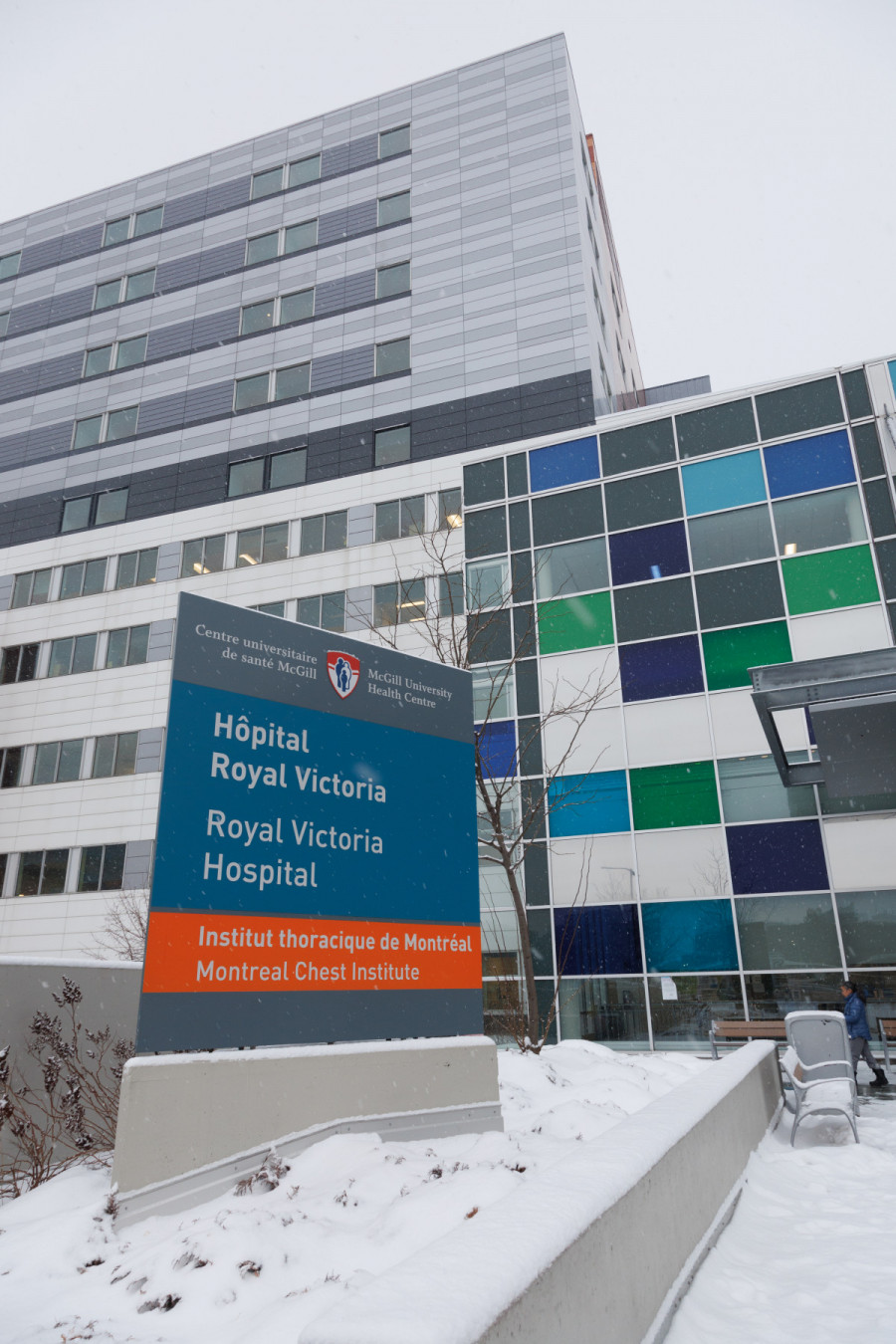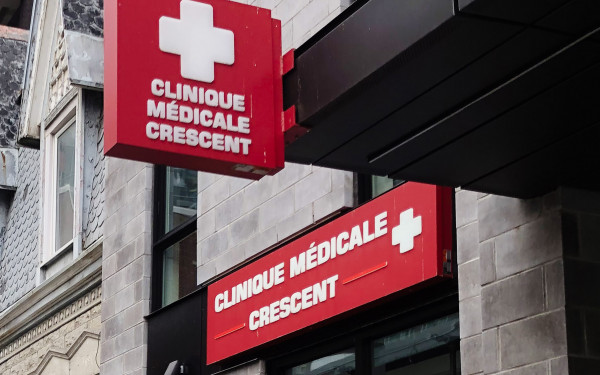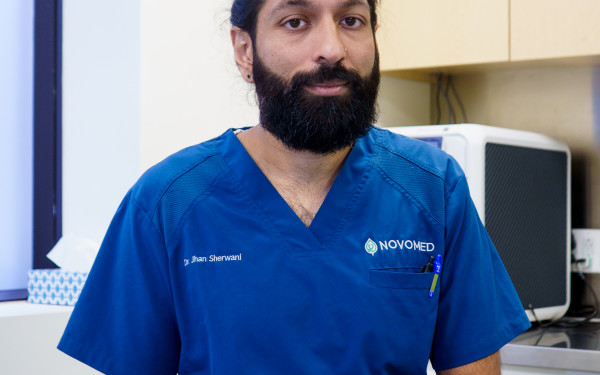The detriments of Bill 83
New legislation is threatening to disrupt medical career plans
When Helena Johnson got accepted into medical school after years of trying to get in, she was thrilled.
She spent years not seeing friends and missed parties to stay home and study. Throughout her time as a medical student, she’s worked hard, all for the goal of one day practicing medicine and helping people. Now, in the middle of residency applications, she is seeing her efforts come to fruition.
However, after the Quebec government announced Bill 83, her excitement turned to disheartenment.
The bill, tabled in early December, would require Quebec medical students to practice in the public healthcare system for five years after the completion of their education, with fines of up to $100,000 for first offences.
“I would be so incredibly frustrated [if the bill passes] because I think there’s just a total lack of respect for how much I’ve dedicated and how much I’ve sacrificed to be here,” said Johnson, who studies at McGill University.
Medical professionals have been critical of the announcement. Ewa Sidorowicz, a specialist in internal medicine and the former director of the McGill University Health Centre (MUHC), believes that forcing Quebec medical students to stay in the province might backfire and lead to a mass exodus of medical students.
“The big concern here is that if this is put in without any nuance or agreement, some of these residents might just say, ‘Family doctors are needed all across the country, I'm leaving,’” Sidorowicz said.
There is also a large lack of detail in the proposed bill. Joyce Pickering, a general internist at the MUHC, criticizes the bill due to this lack of precision.
“One of the problems is there’s almost no details, and the devil’s in the details,” Pickering said. “Is this going to apply to residents? Is it all residents or residents that have finished a certain discipline? All of those things make a huge difference.”
Canada operates on a national residency system, where applicants and hospitals across the country are matched. The bill does not specify whether it will affect residents who did their previous schooling outside of Quebec but their residency in Quebec, or those who did their previous education in Quebec but their residency out of province.
Health Minister Christian Dubé put forward the bill in part due to a sharp increase in doctors in the private sector, with a 70 per cent increase since 2020. According to Sidorowicz, this trend could be related to the understaffed nature of the public system, with patients having to wait increasingly longer to see a healthcare professional. Some doctors feel the need to switch to the private sector to provide quicker care.
“[Medical practitioners] finally just say, ‘Fine, I’ll go to this private clinic,’” Sidorowicz said.
Over two million Quebec residents lack a family doctor, almost one in four, according to l'Institut national d'excellence en santé et en services sociaux. The province has consistently had the most residents without a family doctor of any province in Canada.
For family doctor Laura Sang, doctors in her field have a mountain of responsibilities, from managing chronic conditions to preventative medicine to cognitive assessments or even finding community services for patients in need.
“People are sick and there's just not enough people to take care of them, and a lot of that burden falls on family doctors,” Sang said.
However, despite the 70 per cent increase in the number of private sector practitioners, the number itself is not massive—it constitutes 775 physicians who have completed residency out of 22,479, just over 3 per cent.
“The problem that I see is that [the increasing shift to the private sector] indicates that our system isn't doing what it should do,” Pickering said. “If both the doctors and the patients feel they have to go private, it’s because patients feel they can't get services they need publicly and doctors feel they can’t offer the services they want to offer publicly.”
Quebec family doctors must practice within a specific area and must give a certain percentage of time to specific medical practices as required by the government, or they will get their pay docked 30 per cent. These restrictions, in tandem with the wide variety of responsibilities family doctors take on, lead to family doctors burning out and turning to the private sector, where they have fewer restrictions on how they can practice and more resources to work with.
“Our healthcare system is a bridge,” Sang said, “there's only so many support structures and costs and materials that you can cut before the bridge collapses. There is a certain baseline that we need that we cannot function without.”
Some medical practitioners suspect that this bill is an attempt to save face in the wake of a dysfunctional Quebec healthcare system.
“The government has not been able to deliver on their promises of one doctor for every person, better access and so on,” Pickering said. “They’ve put more money into it, but for the average person on the street there are still many people who struggle getting primary care, so I suspect they need to look like they’re doing something.”
Johnson believes that this new bill will actually worsen health care conditions, with the lack of autonomy and removal of their support system leading to increased burnout from doctors.
“I think there’s a total lack of consideration for the fact that people have a life outside of medicine, and if you’re forcing them to move somewhere, you’re taking them away from all their resources,” Johnson said.
Another reason for this bill is the cheaper price of medical education in Quebec, which comes at the price of higher taxes for the population. Quebec’s education is subsidized more significantly than in other provinces, and medical students pay lower tuition at Quebec’s universities than others in the country. The government has estimated that it costs between $435,000 and $790,000 to train a doctor in Quebec, including residency, which is why government officials believe these doctors must work in the Quebec public system.
However, Johnson believes that this use of cost as a justifier is not accurate, as students doing their residency provide cheap labour in the public system.
“I don't think they’re necessarily mentioning how much free labour they're getting out of [residency],” Johnson said. “Our healthcare system would absolutely collapse if you did not have residents in hospitals, and residents are paid tiny salaries.”
Quebec Premier François Legault has said that he will preemptively use the notwithstanding clause, a loophole in the Canadian Charter of Rights and Freedoms, to put this bill into effect. However, constitutional lawyer Frédéric Bérard says that this would not be possible, as the notwithstanding clause only covers certain sections of the Charter.
“This would be an infringement to section six, which guarantees the liberty of circulation within Canada,” Bérard said.
The bill would restrict the freedom of movement of Quebec medical students, so this Charter violation might mean that the bill will get overturned. Yet, medical students like Johnson are still grappling with the frustration this proposed bill has caused.
“I understand that my schooling may have been cheaper,” Johnson said, “[But] I would rather pay more money and have the liberty and autonomy to choose where I practice.”
For privacy and security reasons, the name 'Helena Johnson' is a pseudonym.







